What becomes of the jihadi orphans?
In northern Iraq, Bel Trew visits the Zahour orphanage in Mosul to meet the children of Isis fighters killed in airstrikes, rejected by families because of their parents’ affiliations

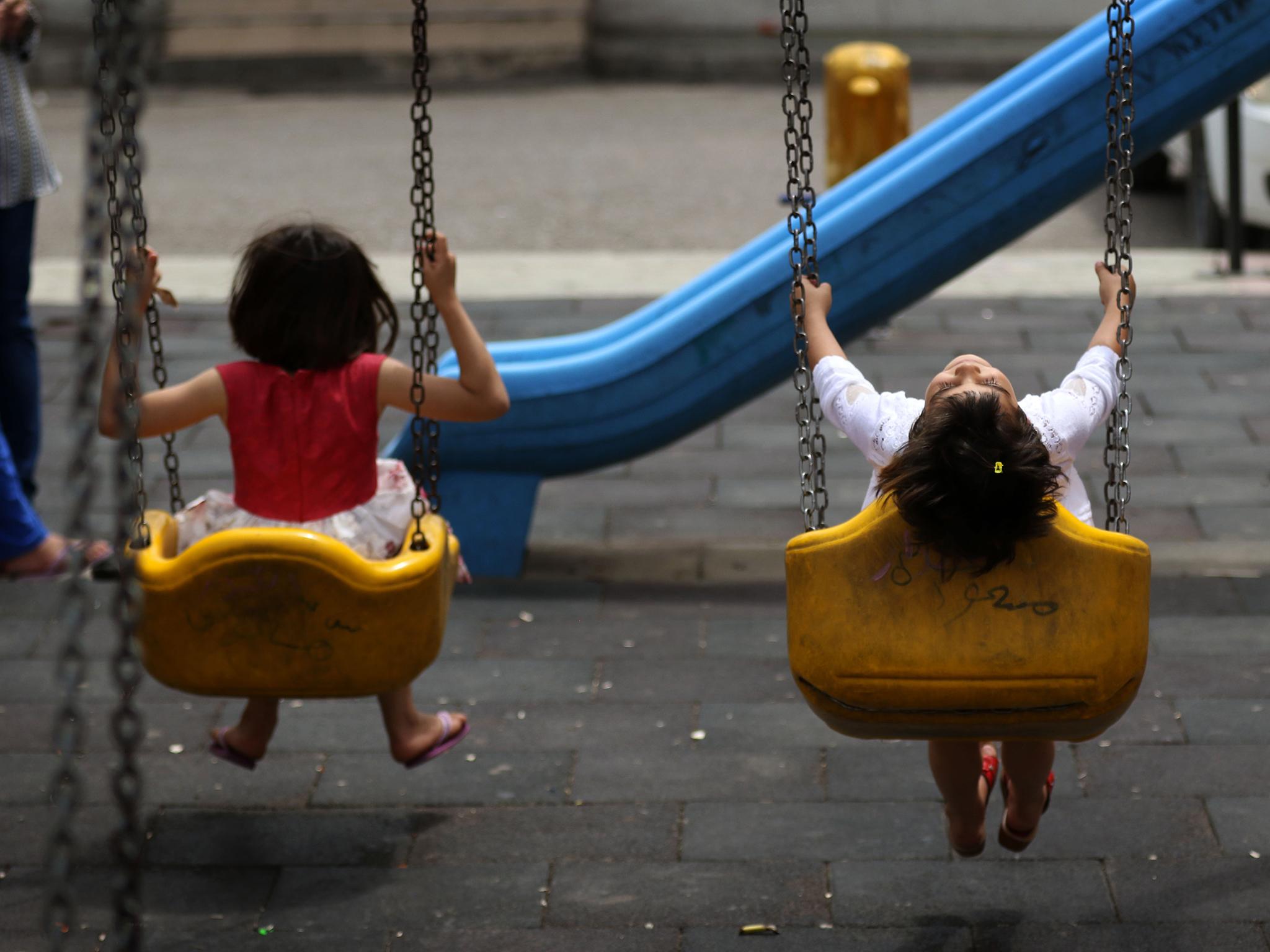
It is hard to imagine that the two little girls, chattering about teddy bears in pretty dresses with bows in their hair, were two years ago pulled out from under the rubble of an airstrike that killed their parents: hardened Isis fighters.
Sara, 11, and Layla, 9, are not related but their fates are eerily similar. Both their parents were part of the hardcore cadre of the global terror group that fought to the very end in the Iraqi city of Mosul.
The little girls both miraculously survived missile strikes that pounded Isis hideouts in Mosul’s Old City, the site of the bloodiest battles of the Iraqi army’s offensive on the group’s largest stronghold. The pair are now living in the Zahour orphanage in the city, a place of refuge trying to care for the children left behind by Isis.
The two girls, who were too afraid to speak or play when they first arrived, have extended families that know where they are. But like most of the Isis orphans here, they face crushing stigma and have been rejected by their relatives because of their parents’ jihadi affiliations.
“I want my aunts in Kirkuk to come here and see me and take me back with them. That’s my dream,” Sara says suddenly, while shyly playing with the hem of her dress.
The announcement momentarily blindsides Amal Abdullah, deputy director of the orphanage.
“This is the first time she has ever admitted to having any living relatives,” Abdullah explains quietly. “An uncle called to check on her once but refused to pick her up. We have to follow this up.”
It is difficult work for the staff at the orphanage, which was once a barracks Isis used to house teenage soldiers during its bloody two-year rule of the city in northern Iraq.
The building was hastily rehabilitated and redecorated last spring and opened to care for dozens of children once the jihadis had been flushed out of the city.
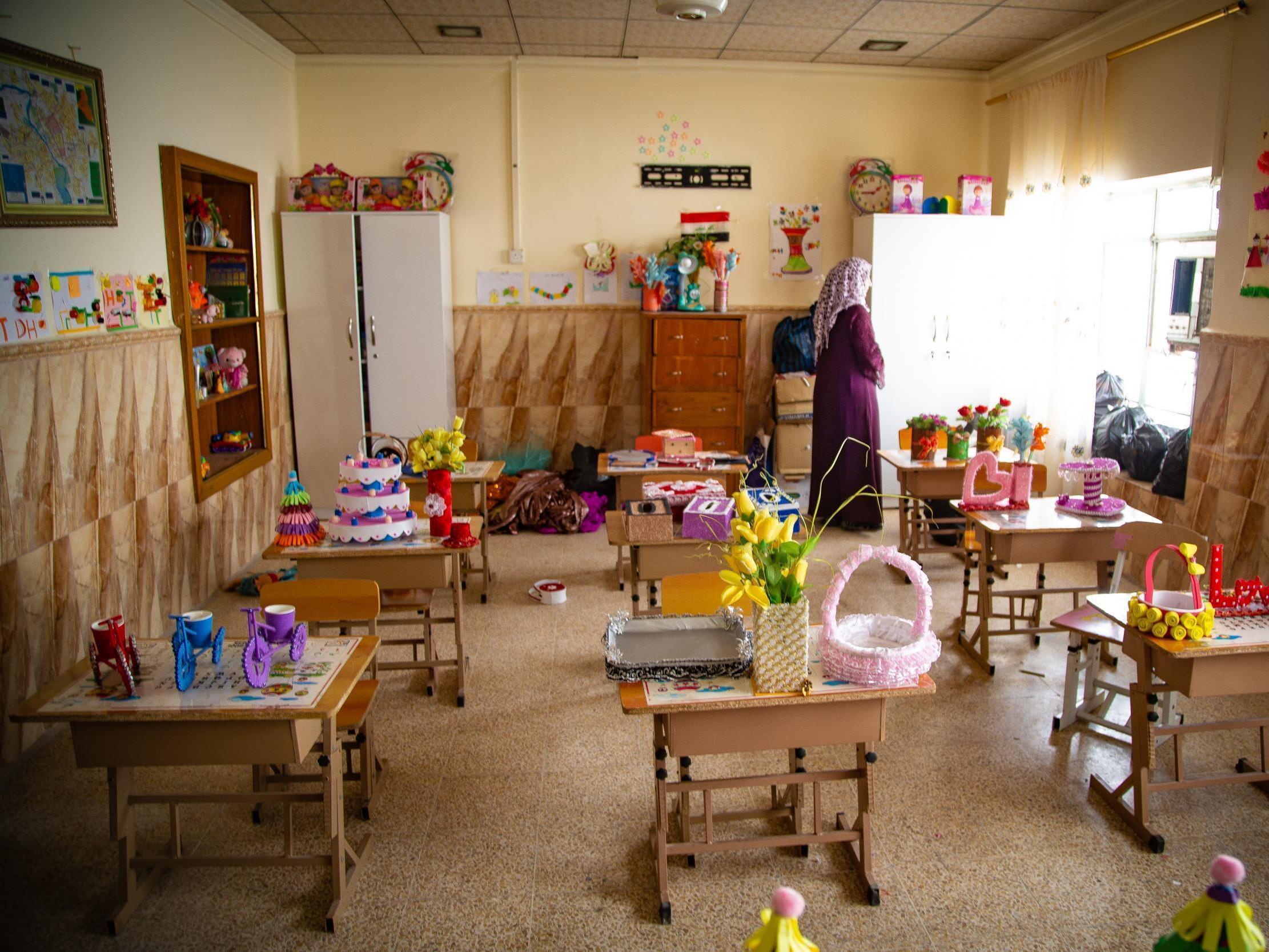
Now 33 children, 24 of them girls, live here. The youngest residents are just a few months old. The centre did have a number of foreign Isis orphans who have largely been claimed by their families and are kept from the public for their own safety.
All the children are traumatised and require specialised care.
But the centre is short-staffed and woefully underfunded. Last summer they started receiving government funding which assigned just over a million dollars to a total of 10 different centres caring for victims of the war, including centres for adult amputees. The orphanage’s director Ghazwan Mohamed says it is not enough. They cannot rely on local donations because of the stigma associated with Isis.
“We are desperate for support. We are dealing with special cases that need a lot of resources, a lot of money. We need backing so we can continue our jobs and give the children a better life,” he tells The Independent.
When the children arrive, they are often severely psychologically distressed and, in some instances, brainwashed.
The children who have been brainwashed refuse to participate in the parties or games we organise because they believe they are forbidden. It’s tough work undoing the damage
Isis conscripted thousands of children into its ranks, often forcing them to fight, take part in extrajudicial executions and even be suicide bombers. In Mosul, residents told The Independent how the group targeted children and youths with propaganda campaigns at “media points” throughout the city that played videos on loop glorifying slaughter and battles.
The orphanage’s team, which includes psychologists, monitors newcomers for a month and then puts the children through a psychosocial support programme. Bed-wetting, anger issues, muteness, violence and sleeplessness are common.
“Some are very aggressive and refuse to come to class, some do not want to eat,” Abdullah continues.
“The children who have been brainwashed refuse to participate in the parties or games we organise because they believe they are forbidden. It’s tough work undoing the damage.”
Identifying the children and their families is also difficult as they are often brought in haphazardly with little information about their backgrounds after court orders from judges. Most have been found abandoned or wandering around Mosul by the Iraqi police or locals who drop them off at displacement camps.
The orphanage requested that none of the children be photographed, fearing that they might be identified as the relatives of Isis and so furthered shunned by the community.
The case workers also asked that the names be changed and that the children not be forced to relive their trauma.
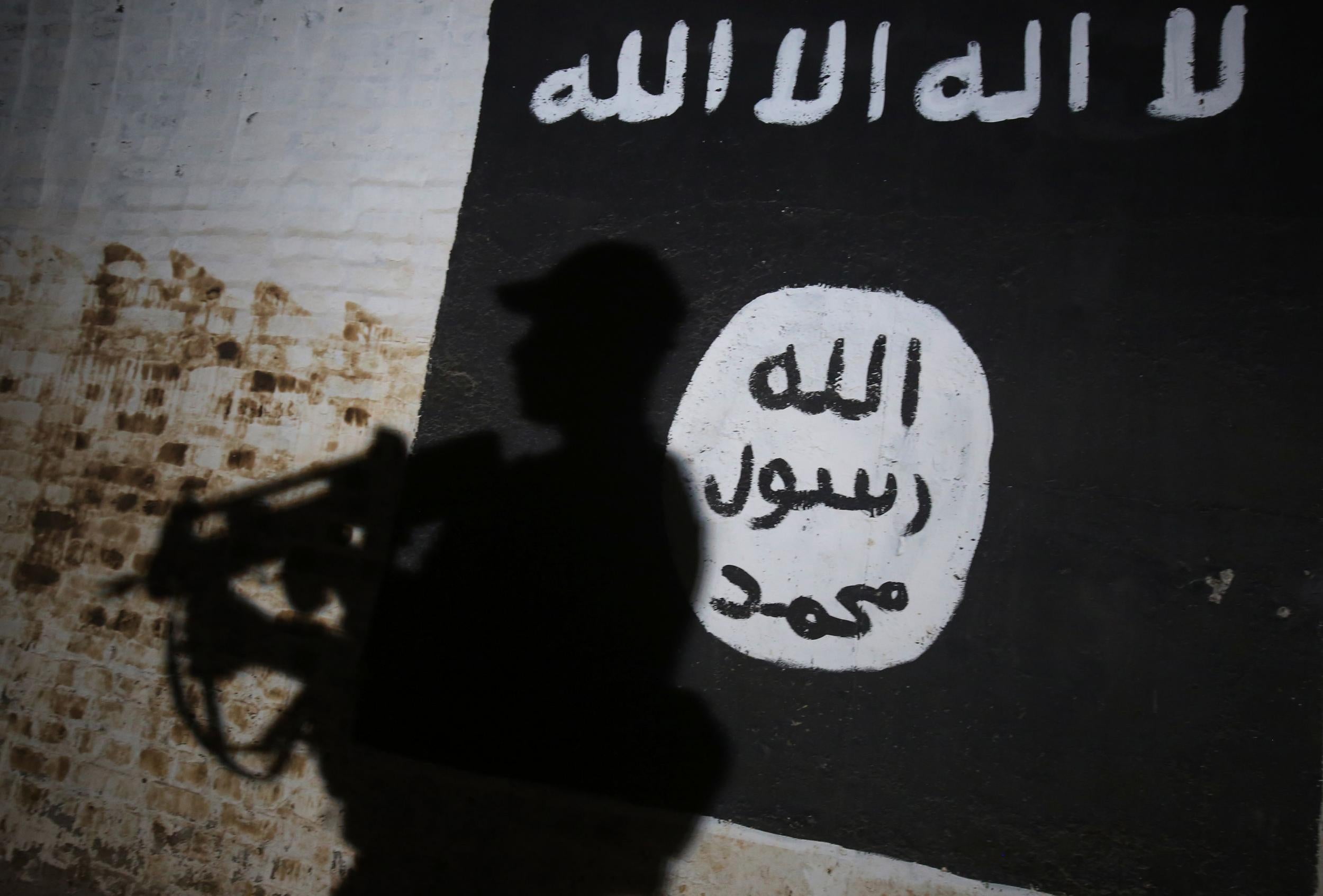
The toughest cases are the babies that were born under Isis in Mosul as they are not issued ID cards, and so starting paperwork from scratch for such an orphan is a nightmare. Some children had parents but were separated during the flight from Mosul.
One girl who is now five years old, and lost her relatives at a displacement camp, has been claimed by two separate families, one Yazidi, one Arab. Abdullah says the orphanage has to send costly DNA tests back to Baghdad to try to identify the true parents.
“It’s incredibly difficult. There are so many missing people. This Yazidi family were going from orphanage to orphanage looking for their missing loved one,” she adds.
The mix of backgrounds also means there is a mix of children whose parents were in Isis and whose parents were killed by Isis. This has caused tension when the traumatised children come in, particularly among the older children who may have already been radicalised and are often aggressive.
“We do not separate them. We try to break the wall between those who were targeted by Isis and those whose parents were with Isis,” explains Najla Ali, one of the teachers, from inside her brightly coloured classroom that is packed with arts and crafts.
“We put them in a place where they are not allowed and not supposed to talk about this. It is not their fault – they are just children.”
The women spoke as we moved towards the creche where 11 babies are being looked after in wooden cots lining the walls. Among the babies was the orphanage’s “worst case”.
Baby Hamid was found last year, aged just eight months, on the carcasses of chewed up buildings along the front line.
He had been left by Isis as a human shield behind a barricade of explosives to stop Iraqi forces entering a neighbourhood.
“The Iraqi army knew they couldn’t reach him: it was a trap. They had to leave him in the rubble on the front line. When they came back the next day they found a dog was trying to tear off and eat his am,” Abdullah says.
The boy, who survived, was eventually rescued and had his arm amputated. The authorities bought him to the orphanage where he was one of the centre’s rare success stories.
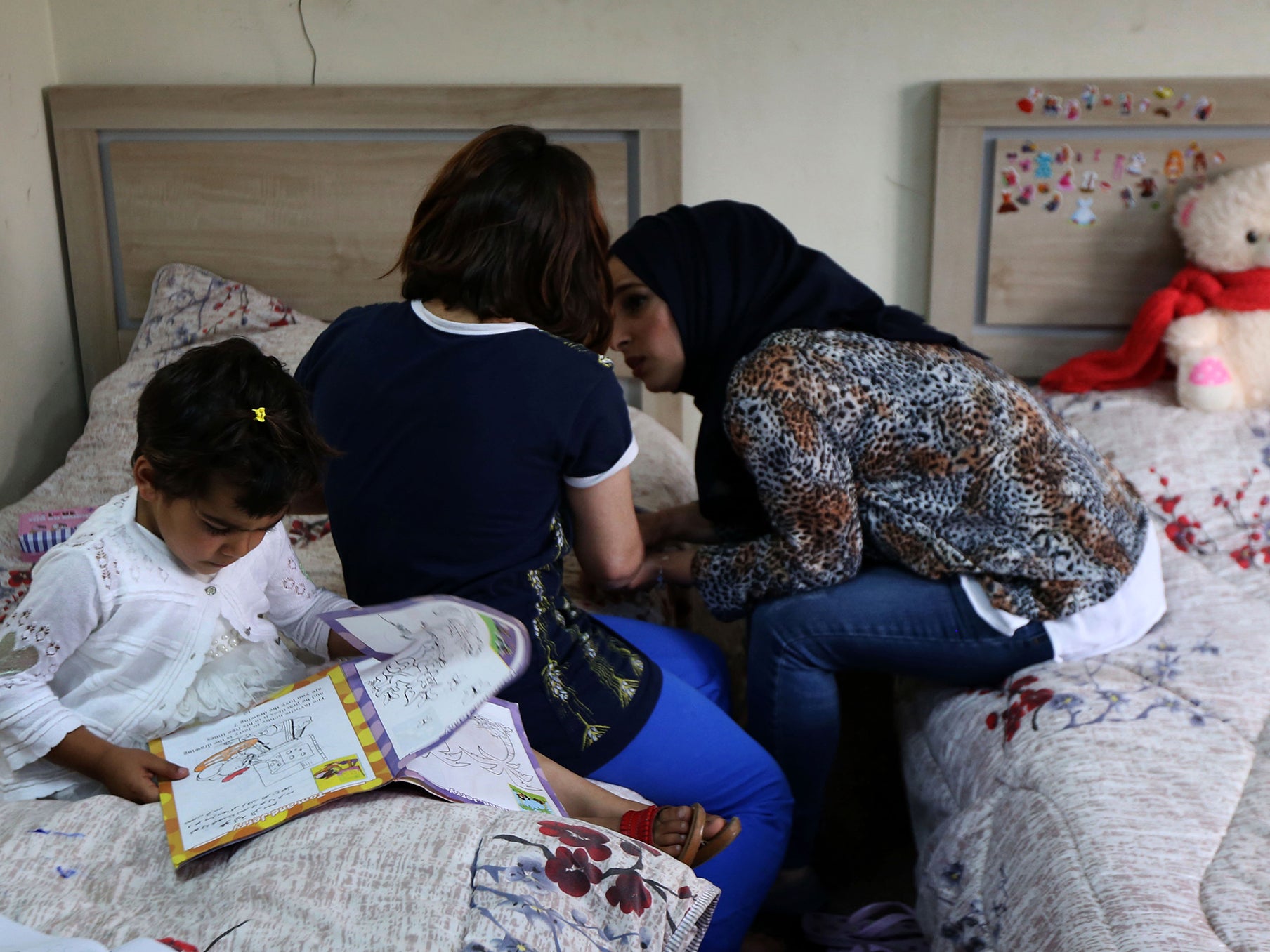
“We arranged a family to adopt him last month,” Abdullah adds, proudly.
Another baby, little Eman, who is just 12 months old, was not so lucky. She was pulled out from under mounds of concrete last summer, aged just one month.
No one knows if her parents were fighters or civilians caught in the crossfire. She has a curved spine and problems with her bones. She screams from her cot when she sees the back brace the staff have brought to put her in.
“She is crying because she knows it will hurt, but we have to do it,” says Abdullah.
“Most of the kids who are not sick, the families who want to adopt them apply for a request to the judge. But with Eman...” Her voice trails off.
For Sara and Layla, the chances of adoption are also very low.
They cling to their teachers, who they treat like their mothers, and talk excitedly about the handicrafts they do at school.
“Layla’s family came here once to meet and check on her. We said, ‘’Why don’t you take her with you? She has no future here,’” says Salah Hussein Ali, a social researcher who has been trying to connect the children with their wider families.
“But they said that people from the village would not accept her because her father was a brutal Isis fighter and hurt a lot of people. I questioned why she should be the only family member punished for this. Why did this man’s seven brothers get to go home?”
The family gave no answer and left.
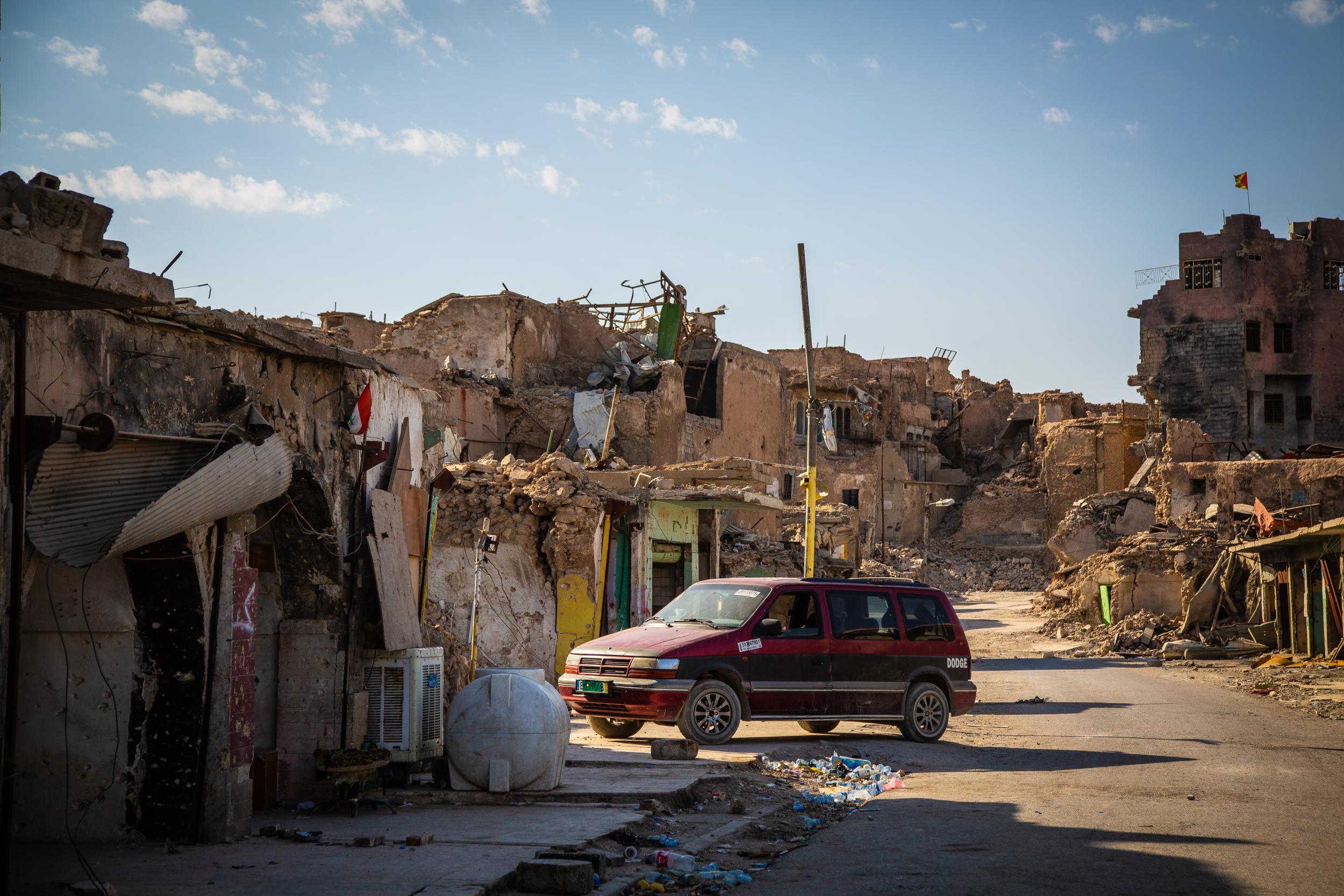
Sara’s uncle, meanwhile, called once and then never again. The staff talk quietly about trying to locate the mystery aunt in Kirkuk.
The orphanage staff discourage the children from dwelling on the traumatic events of their past and say they want the word “Isis” to be erased from their minds. But Layla mentions her “life before” and that she is scared of the sound of aeroplanes because of the air strikes and shelling. She says she wants to be a teacher like the women who look after her.
Sara, who initially toys with the idea of being a teacher too, suddenly says she wants to be a doctor.
“I saw many people with injuries, who were sick,” she adds, rocking her feet back and forth on the chair which dwarfs her.
“I want to be a doctor to save them.”
Join our commenting forum
Join thought-provoking conversations, follow other Independent readers and see their replies
Comments